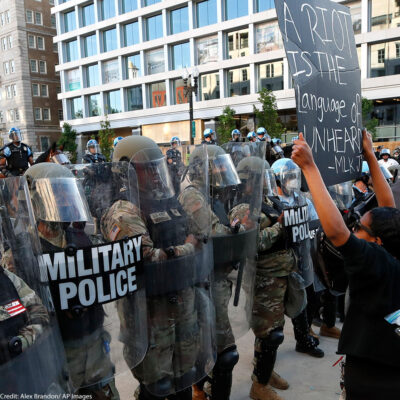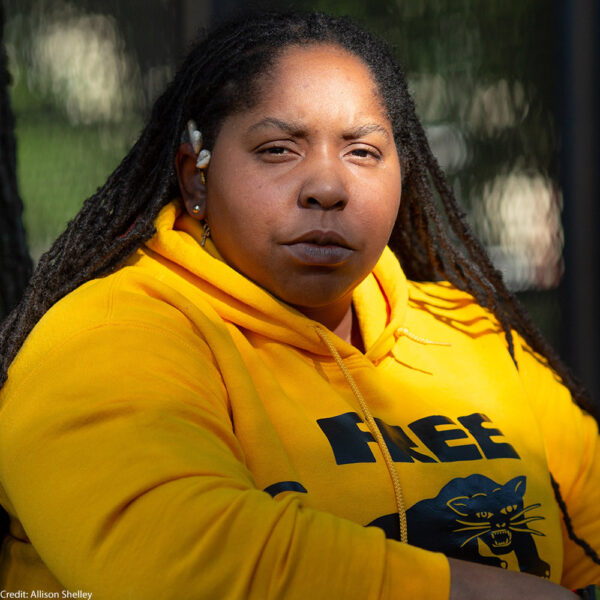ACLU and NEA Sue U.S. Department of Education Over Unlawful Attack on Educational Equity
CONCORD, N.H. – Today, the American Civil Liberties Union, the ACLU of New Hampshire, the ACLU of Massachusetts, the National Education Association (NEA), and the National Education Association–New Hampshire, filed a lawsuit in U.S. District Court in New Hampshire, against the U.S. Department of Education (ED). The lawsuit challenges the Department of Education’s Feb. 14, 2025, Dear Colleague Letter, which threatens federal funding cuts for education institutions nationwide for engaging in diversity, equity, and inclusion (DEI) efforts; and a 14-day window before “appropriate measures” would be taken.
The lawsuit argues that ED has overstepped its legal authority by:
Imposing unfounded and vague legal restrictions that violate due process and the First Amendment;
Limiting academic freedom; and
Impermissibly dictating what educators can teach and what students are allowed to learn.
“Across the country educators do everything in their power to support every student — no matter where they live, how much their family earns, or the color of their skin — ensuring each feels safe, seen, and is prepared for the future. Now, the Trump administration is threatening to punish students, parents and educators in public schools for doing just that: fostering inclusive classrooms where diversity is valued, history is taught honestly, and every child can grow into their full brilliance,” said Becky Pringle, president of the National Education Association. “We’re urging the court to block the Department of Education from enforcing this harmful and vague directive and protect students from politically motivated attacks that stifle speech and erase critical lessons. Teaching should be guided by what’s best for students, not by threat of illegal restrictions and punishment.”
The Department of Education claims, without legal or factual basis, that a broad range of DEI-related education policies and practices are unlawful. The lawsuit contends that ED has no authority to dictate curriculum or educational programs, and that federal law explicitly protects education institutions’ ability to shape their own curriculum, including programs that reflect and celebrate diversity.
“For over a century, the ACLU has fought unlawful efforts to muzzle free speech by over-zealous government officials. It’s clear that the Trump administration is trying to shut down speech it doesn’t like – especially when it deals with race in our educational institutions. The Dear Colleague Letter is a brazen attempt to intimidate schools into abandoning lawful efforts to create inclusive learning environments,” said Anthony D. Romero, ACLU executive director. “This is a blatant attack on free speech and academic freedom, aiming to deprive students of a full and honest education. We will not stand by as the Department of Education uses fear and coercion to force schools and educators into self-censorship by threatening to strip federal funding.”
Educators across the country are already feeling the chilling effects of the ED’s overreach. By unlawfully restricting speech and academic freedom, and opening educators to arbitrary and discriminatory enforcement, ED seeks to violate fundamental constitutional and legal protections. In response, the lawsuit challenges the letter on four key legal grounds:
Violation of the First Amendment – The letter unconstitutionally restricts speech by prohibiting educators from teaching about race, diversity, equity, and inclusion. It also broadly bans DEI programs, including student groups and faculty associations, coercing educational institutions into self-censorship through the threat of losing federal funding. In higher education, the government cannot dictate what professors teach, and in K-12 schools, Congress has prohibited the federal government from dictating curriculum.
Violation of the Fifth Amendment – The letter fails to define key terms and practices, leaving educators uncertain about what is prohibited and vulnerable to arbitrary enforcement. By failing to establish clear standards, ED creates a chilling effect, forcing teachers to avoid important discussions in history, English literature, and more, or to risk arbitrary and discriminatory enforcement that threatens their professions.
Violation of the Administrative Procedure Act (APA) – The letter imposes new legal obligations without the required process and justification, making it arbitrary, capricious, and legally invalid. ED oversteps its authority and ignores decades of legal precedent and its own prior guidance on civil rights law, failing to explain why it is now reversing course on long-standing principles of equity and inclusion.
Misrepresentation of Supreme Court Precedent – The letter misstates and overstates the Supreme Court’s 2023 ruling in Students for Fair Admissions v. Harvard. The decision only addressed race as a formal admissions factor in higher education — it did not ban curriculum, student groups, DEI programming, or race-neutral diversity initiatives.
“Like New Hampshire’s classroom censorship law that we successfully challenged in court, this unconstitutionally vague letter is an attack on educators who are simply doing their job,” said Gilles Bissonnette, legal director of the ACLU of New Hampshire. “Teachers are already reporting being afraid to teach for fear of having their teaching deemed unlawful, and that deprives Granite State students of the complete education that they deserve.”
The complaint can be found online here.





